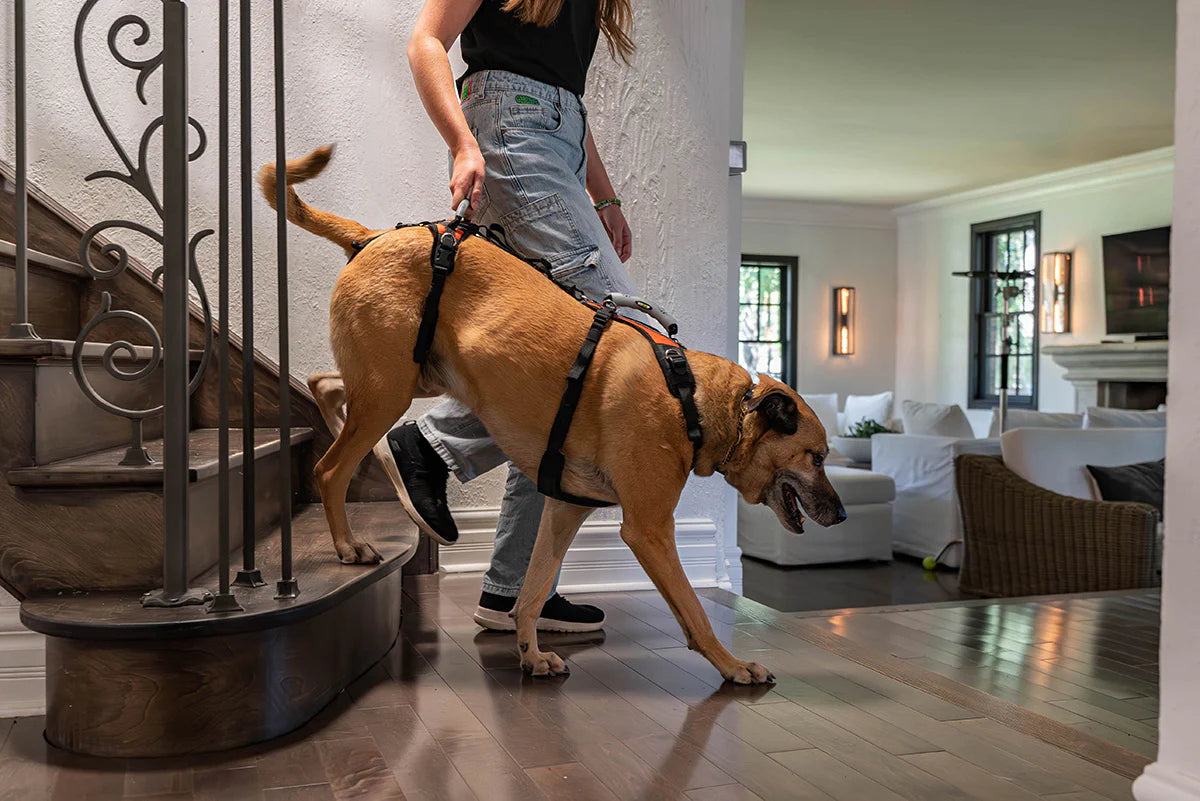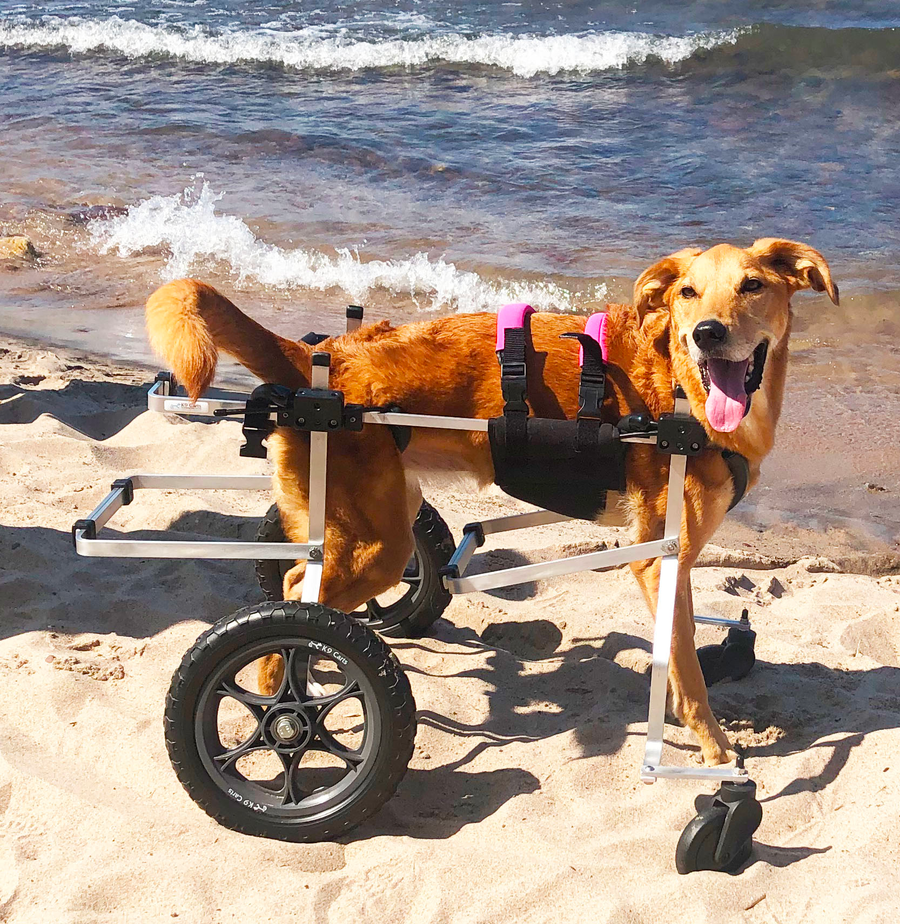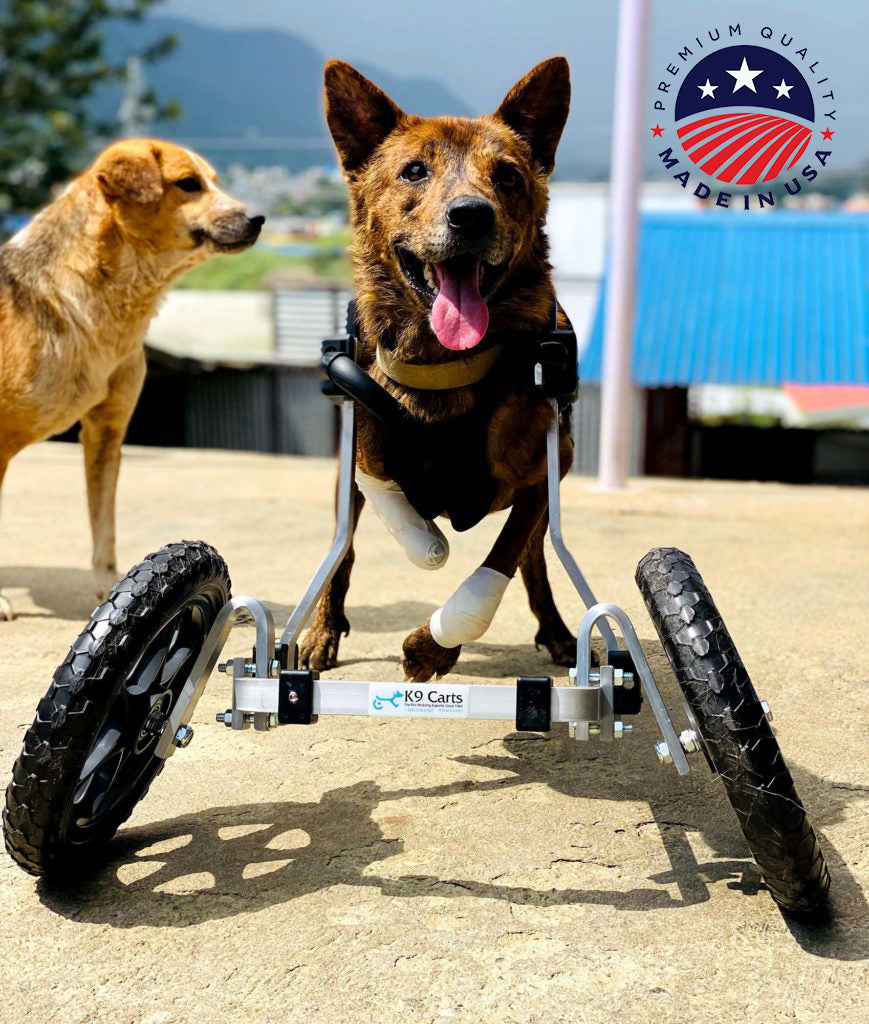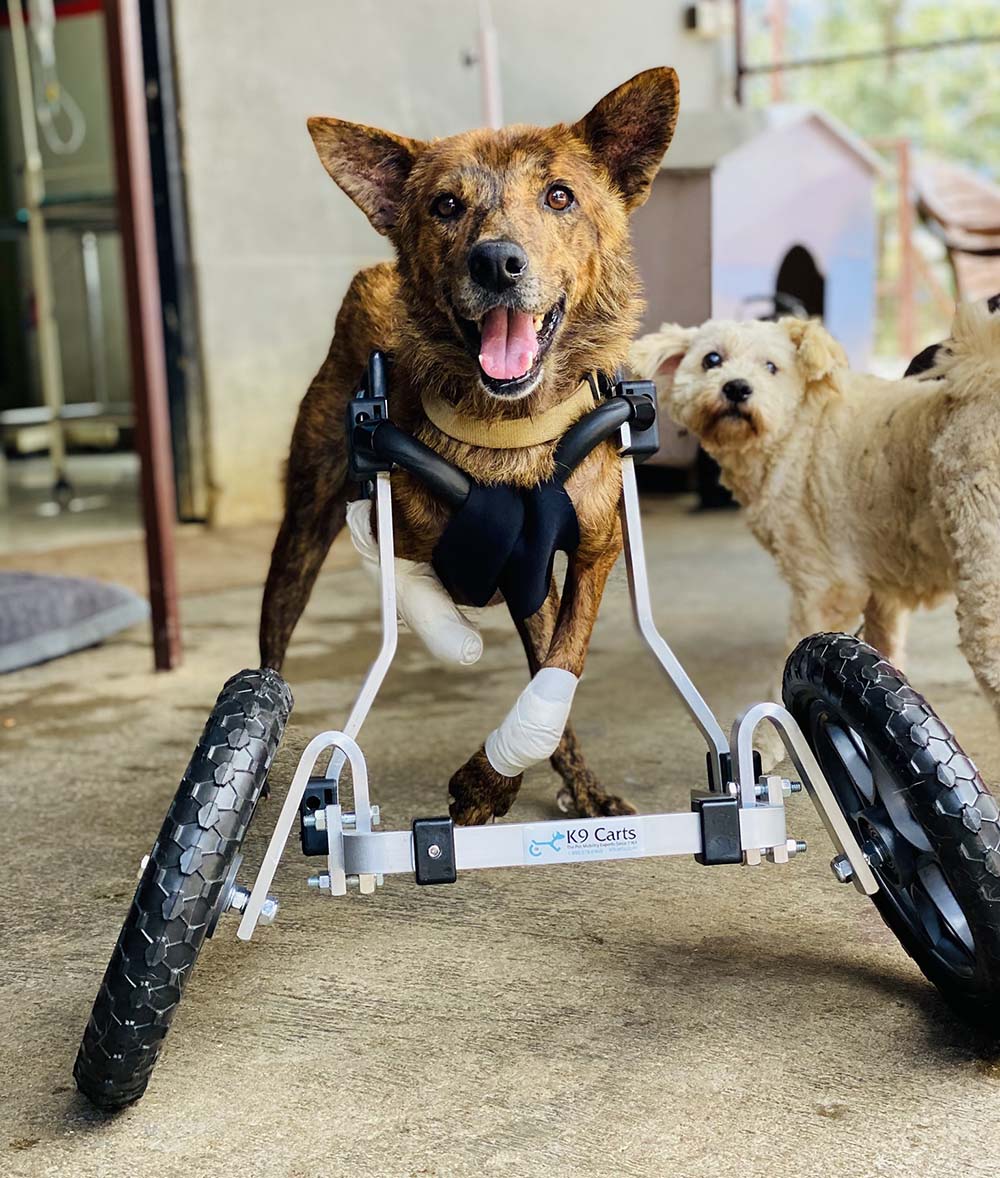Labrador Retriever Health Problems
Your Labrador Retriever is a popular, beloved family dog. Labs were bred as hunting dogs. Hunters in Atlantic Canada and Britain used labs to retrieve waterfowl from marshes and lakes. As a result, your Lab is strong, intelligent, and an adept swimmer and runner.
However, your Lab, like all dogs, is more vulnerable to certain diseases than other breeds due to its genetic makeup.
Degenerative Myelopathy in Labs
Degenerative myelopathy (DM), a spinal nerve disease, is more likely to affect your Lab than other dogs. A Lab with degenerative myelopathy will gradually start to lose movement in their legs and lower body. They could start to have accidental bowel movements in the house as a result, even if they’re well trained. Dogs with severe degenerative myelopathy can actually become paralyzed.
DM isn’t painful—since it’s a nerve disease, it removes sensation from the areas it affects. Yet it can hold your Lab back. As you know, your Lab loves to run, swim, and socialize. It’s hard for a dog with paralyzed legs to do any of those things.
If your Lab has DM, give it a comfortable bed. Keep the bed and the dog clean—a dog that lies around for long periods can develop bed sores, just like a person might.
The disease can’t be reversed, but you can mitigate its effects. Dogs with DM can get some circulation and sensation back with the help of kinesiology tape. A wheelchair is another helpful tool. A custom-built dog wheel chair can help an animal with DM get around comfortably.
Hip Dysplasia in Labs
Some Labs are born with hip dysplasia (HD), a genetic condition that causes the bones to form a bad fit in the joint. This causes the dog’s leg to scrape against its hip socket. A dog with HD will experience some combination of pain, damage to the cartilage in the joint that connects the bones, and arthritis.
Since HD is a genetic condition, it’s present in affected Labs at birth. Breeders should screen their dogs for this condition. Prospective adopters should always ask a breeder if they’ve done so. After all, hip dysplasia may not be obvious right away. The disease might not be a serious issue until your dog has grown up and put a few years’ worth of stress on the affected joint.
A Lab with HD might favor one of its legs instead of the other. A dog with HD will be reluctant to exercise due to the pain. That’s a pretty noticeable change in a Lab, since Labs usually love to run, jump, and swim.
HD has a range of severity. Low-impact cases are easy to manage with anti-inflammatory medication and physical therapy. Moderate cases can be mitigated or repaired with surgery. In extreme, inoperable cases, a Lab with HD might require a wheelchair.
Obesity in Labs
Labs are more likely to be overweight than other dogs. Since they were bred to be an energetic, hardworking dog, contemporary Labs with busy caretakers might not get the exercise they need.
Anyone who’s cared for a Lab knows that they love to play and exercise. A Lab can run around for hours and want to keep going long after their human is ready to take a break. That motor, combined with Labs’ love of eating—something has to keep the engine going, after all—is why some Labs become obese.
To help your Lab cut their weight, and avoid problems weight gain can cause, like arthritis and diabetes, you should adjust their diet and activity level. Take your dog out for plenty of exercise. If you can, space that exercise out throughout the day, so that they’re constantly burning calories.
Vets recommend these exercise guidelines: weigh your dog, then multiply the weight by two. That’s the amount of time that your dog should exercise with moderate exertion. A 60-pound dog, for example, should get at least 120 minutes of exercise per day.
Take the same approach with your dog’s food. Feed your Lab small portions: don’t let them scarf a big bowl of kibble all at once. Give them these portions throughout the day, so that their body doesn’t start converting excess food into fat. And cut back on the table scraps. It might seem your Lab can replace your broom and mop, but it’s worth it to try and get to dropped food before they can.
Consult Your Vet About Your Lab
This isn’t meant as a comprehensive guide to all the diseases and health conditions that could affect your Lab. It’s meant to alert you of health problems that you can bring to your veterinarian’s attention. If your dog displays any of the symptoms above, take them to the vet as soon as you can.
Learn More About Your Lab’s Health
Labrador Retriever — UFAW
Obesity is a Common Problem in Labrador Retrievers — Pet MD
A Deletion in the Canine POMC Gene Is Associated with Weight and Appetite in Obesity-Prone Labrador Retriever Dogs — Cell Metabolism









